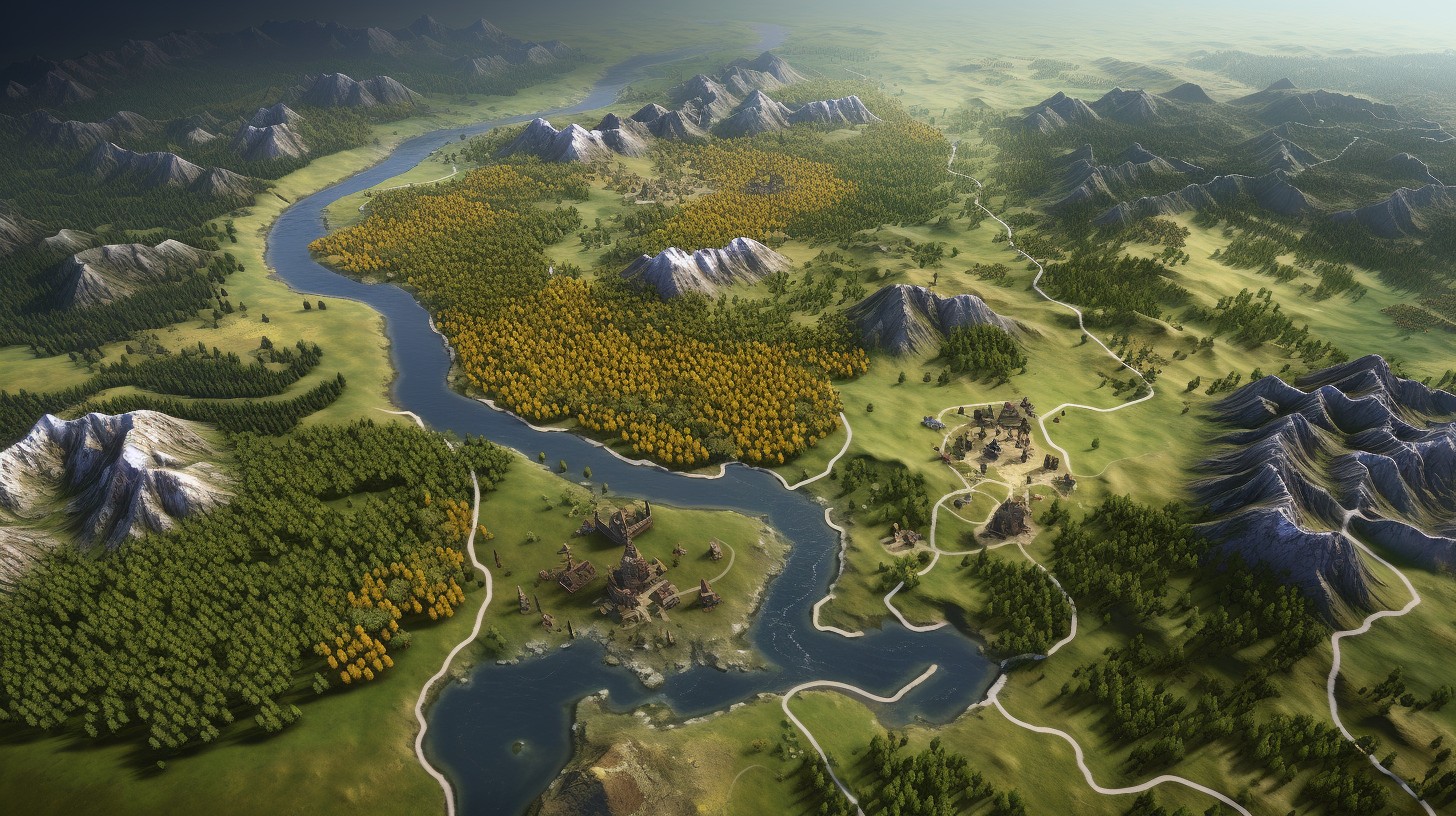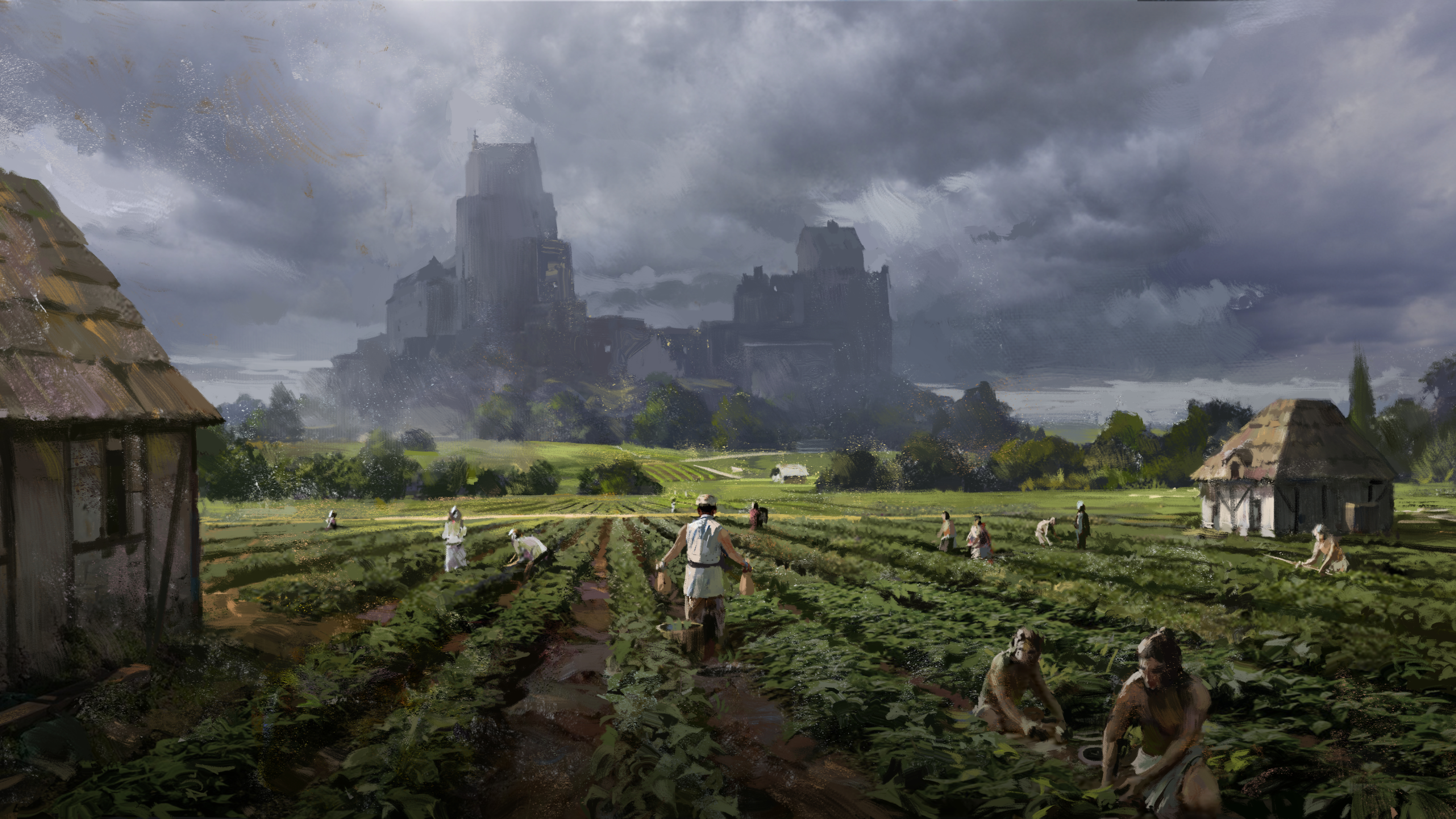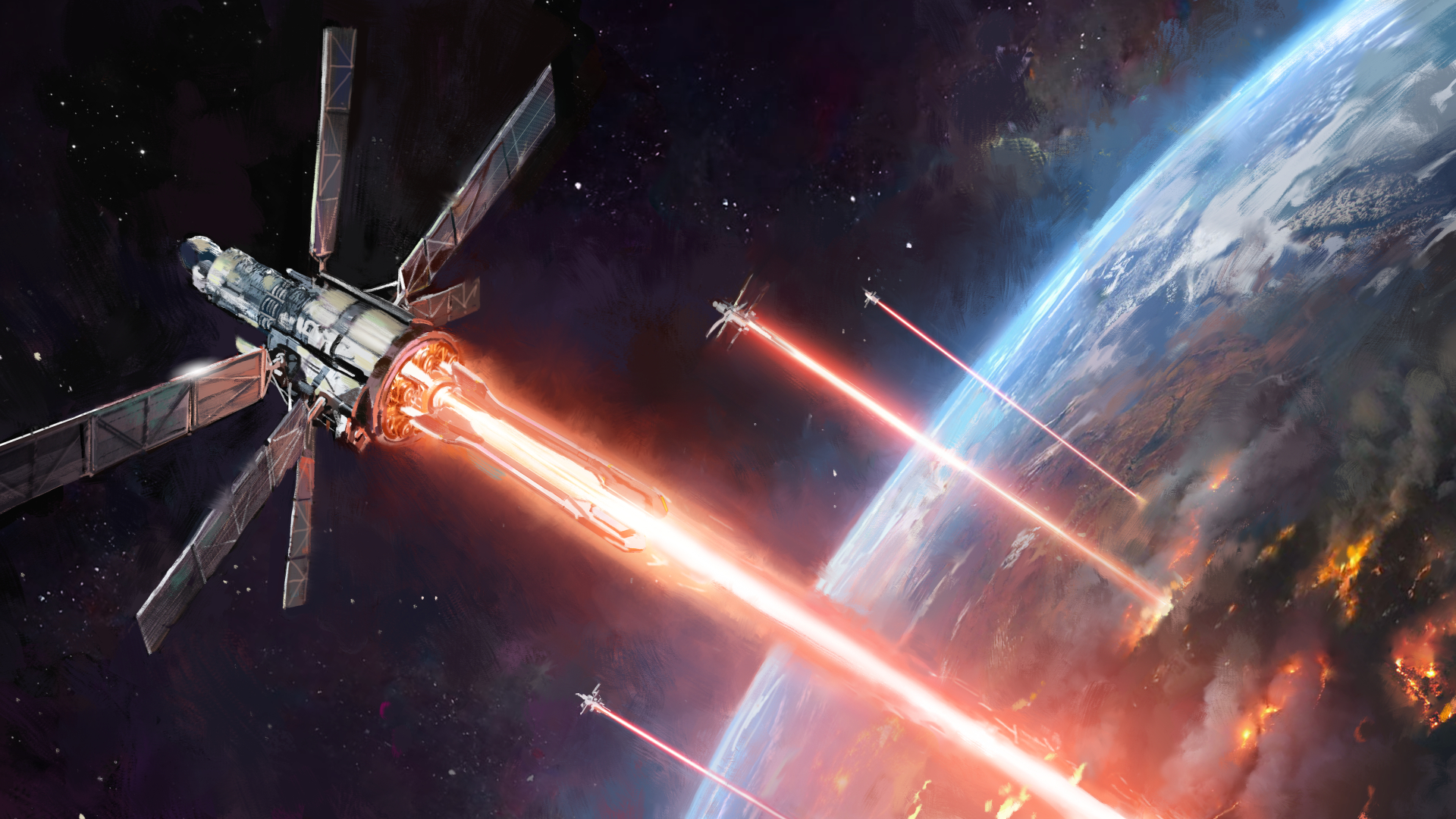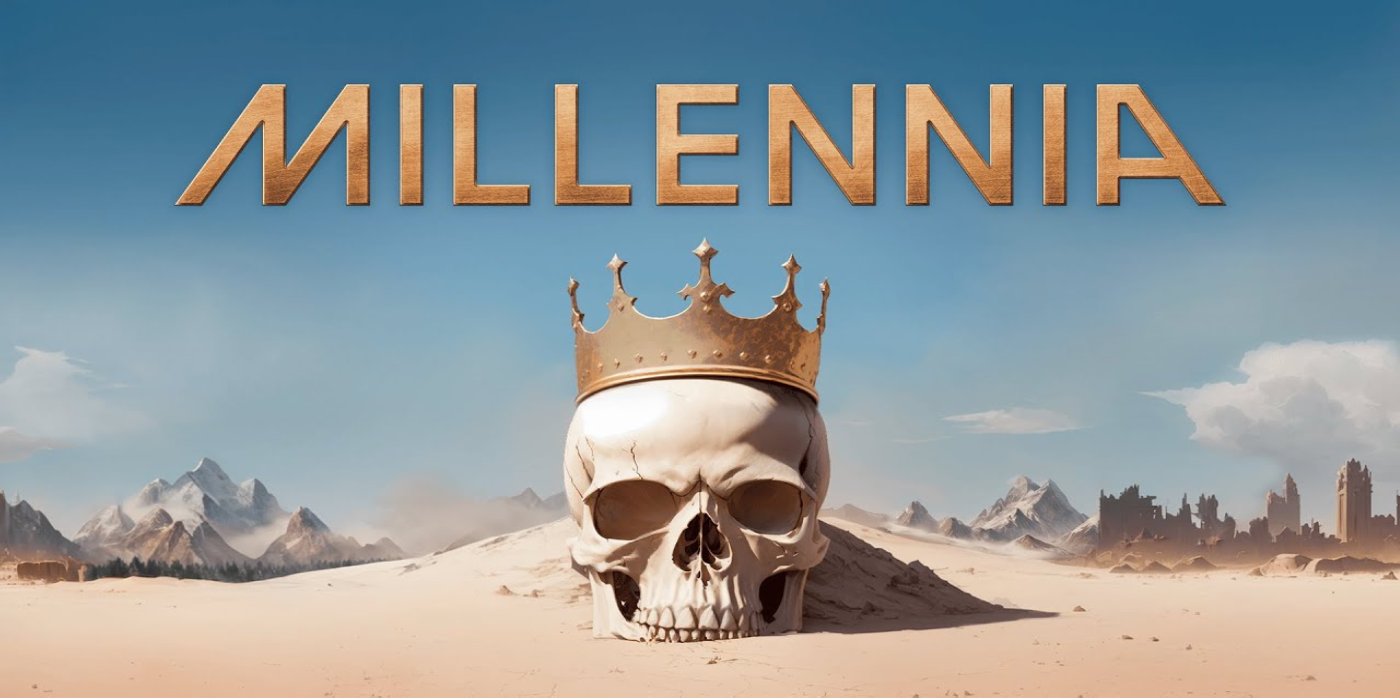It is the best of times and the worst of times for turn-based 4X, also known as 'grand,' strategy games, while the genre has expanded with new players and titles, those same titles have often been mediocre at best. Currently only Civilization (Civ) stands as a titan in this genre, while many other games have tried to recreate Civ (looking at you Humankind) each one has messed up the formula and fallen short of the same popularity that Civ enjoys. Millenia, developed by C Prompt and published by strategy giant Paradox Interactive, stands to be another competitor to Civ's domination of the genre, this article will summarize what we know about this upcoming game and investigate how it will fare in the 4X genre.
Millenia and the Civ-Like Genre
It is important to note that the 4X genre is fairly diverse, and there are a plethora of games in the genre that are nothing like Civ. In fact three of the biggest games in this genre (EU4, HoI4, CK3, all published by Paradox Interactive) are nothing like Civ. There are several core design elements which are shared by games here-by referred to as Civ-Like, the most important concept for our discussion is the history based inspiration of Civ and its kin. Each of these games put you in charge of a nation or civilization that you pilot, over the course of history, to victory. As you advance through the game you build your strategy out of history inspired game elements like techs, cultural innovations, government types and policies, etc.
The Core Design of Millenia
The guiding concept of Millenia is that you are writing the story of your nation through several ages. Each decision you make affects the story and the course of your nation. While this concept is fairly simple, the execution on it will make or break Millenia, if most decisions in the game aren't meaningful and don't shape the strategy of your nation then game will be tedious and lack replayability (one of the several issues with Humankind).
Beyond this guiding principle the developers established four gameplay 'pillars' with the goal of creating "open-ended" and "systems-based" gameplay. These pillars are: The Age progression mechanic, the National Spirit tech tree, the supply chain based economy mechanics, and the strategic level military mechanics. It goes without saying that each of these mechanics will succeed or fail based off of how repayable they are.

The Age Mechanic
In a video C Prompt outlined how the age mechanic represents the progression of the game and enables more fantasy elements into Millenia. Each game will have a max of ten ages and, in a design reminiscent of Civ 6's golden & dark age mechanics, the way you play in one age will decide the age you progress to. The normal ages, such as the Age of Iron or the Age of Kings, have no requirements but the 'alternate history' ages do, such as having low sanitation or fighting lots of wars. Each age has unique techs, buildings, and artwork as well as mechanics such as the Age of Plague which will kill the population of your cities. You can also progress to special "Victory Ages" if you are much more powerful than the other nations. The Victory Ages will (obviously) lead you to winning the game through various win conditions.
National Spirits and Strategic Diversity
In the same video which described the age mechanic, C Prompt describes their vision for the National Spirits mechanic. National Spirits are a collection of modifiers and abilities which represent what your nation is known for and enable your strategy. National Spirits are purchased from a list of different National Spirit Groups each is similar to a mini tech trees in other games, and are inspired by historic cultures. The National Spirits you choose influence your strategy and nation in two ways, first is their direct benefits such as new buildings or modifiers, second is the Domain Point they are tied to. Domain hasn't been clearly defined by C Prompt yet, but what we do know is that Domain Points are split in six categories which you can spend for benefits and the amount you accumulate is affected by the National Spirit Groups you choose.
The National Spirits will enable strategic diversity, which is (in my opinion) one of the most important aspects of any strategy game. The more viable choices you have for the direction you take your nation gives the player more agency in how they play and makes the game more replayable; this is especially important a "systems-based" game like Millenia aims to be. The National Spirits will only be as fun as there are well balanced National Spirits to choose and strategies to build from them.
Goods and the Economy Mechanics
Anyone familiar with Civ 6's Luxury & Strategic goods system will be familiar with the basis for Millenia's system. However, where Civ 6 only gives the goods an effect or uses them to pay for the cost of unit Millenia introduces a whole supply chain system with over 100 goods. This supply chain system has two elements. The first that some goods can only be made using other goods, such as creating books out of paper which you make out of wood, which allows you to convert simple goods into more powerful goods or goods with an entirely different effect. Your population has needs which required goods as well, and while these needs will start simple they will complicate overtime as your nation advances, requiring you to diversify and develop your economy to meat the needs of your people.

Military Mechanics
Arguably one of the most important aspects of any grand strategy game and absolutely critical to multiplayer, a bad combat system will ruin any game, while a good, engaging one will drastically improve it. Not all 4X games use similar systems, while Civ 6 and Humankind have a combat system which involves tactical engagements on the worlds map, Age of Wonders 4 favors tactical engagements on a separate battlefield. Millenia is favoring a strategic level of combat, just like in Civ 6 you decide what unit fights were, but unlike Civ 6 you can create armies out of several different types of units. There are three types of units: ranged, line infantry, and mobile units; which leads to a rock-paper-scissor style battle system. You can build an army out of any combination of these units, however you are limited by the army size cap that scales overtime. For more information a dev diary from C Prompt covers the combat system in detail.
DLC, Modding, Multiplayer, and the Future of Post-Release
We already know a little bit about the post release plans of Millenia thanks to a Q & A article. While it seems a little too forward thinking to be considering DLC and other post-release plans for a game that has only had a month of development news and no planned release date, it is common practice in 4X games (and Paradox games) to have DLC plans for a year or two after release.
Civ6, Humankind, Paradox, and the DLC Formula
Love it or hate it DLC is an integral of most games, used to keep a game interesting and drive sales over several years. While it has been confirmed that there will be DLC with new ages included there is not much to go off of regarding the DLC plans for Millenia. This does not mean we cannot reasonably predict the future DLC plans, as Civ 6 has set a precedent for the genre and Paradox Interactive has set a precedent for the games they publish.
The pattern laid out by Civ 6 and Humankind is one of an intermingling of free DLC, paid DLC which significantly change the game, and paid DLC which add 'flavor' like leaders or civilizations. This pattern has worked to great success for Civ 6 and kept the game alive for 6 years, and it is reasonable to expect something similar from Millenia. Paradox Interactive also has a similar DLC scheme for their games, however instead of any freed DLC which affect gameplay they favor a regular releases of DLCs which add 'flavor' and change gameplay. Paradox has been similarly successful, with EU4 and HoI4 having more players concurrently ten years after release. Without a doubt there will be at least yearly DLCs for Millenia, if not even more frequent than that.
Modding & Multiplayer: Developer Support for the Community
Two of the biggest in-game ways to support a community are modding and multiplayer. Key for ensuring new, shared experiences in the game and vital to maintaining interest in the game, both modding and multiplayer are critical to the long term health of Millenia. Like with the DLCs we have information regarding these two features from a Q & A.
Regarding modding:
Quote From C Prompt Modding support is not in at launch. It will come post-launch, however.
Multiplayer is a different story, with local and online hotseat (hotseat is turned base multiplayer) being available at launch. While they said additional multiplayer support planned they did not make clear what that entails. I will say from my own experience that if they want an active or competitive multiplayer scene then the ability to play everyone turn at once will be needed, otherwise the game will play way too slowly.
The Future of Millenia and the Lessons of Humankind
It has been over two years since the "Civ 6 killer" released, and almost exactly two years ago it reach its current consecutive player count of 1000 to 2000 players, 40 000 less than Civ 6 currently. Humankind fell remarkably short of being a competitor to Civ 6 for a plethora of reasons. Millenia has no hope of "killing" or even being a fierce of the Civ series early on, but if it wants to create a strong player base and following then it needs to learn from the failure of Humankind.
The Extinction of Humankind
"The Extinction of Humankind" is certainly too harsh a statement, as the game still has some active players and the developers are still active, but it is certainly barely alive and I couldn't resist the poetic header. When we ask the question: "Why did Humankind fail?" We have a list of correct answers. The first is that release was buggy, riddled with issues for both singleplayer and multiplayer. The second is that balance issues are everywhere, especially at release. Finally many players saw the core mechanics, especially the culture mechanics, as jarring and unwieldy.

What can Millenia learn from Humankind? The biggest lesson is one I hope goes without saying, to release a game that works, both in terms of having few bugs and smooth mechanics. It is to early now to say how intuitive and fun the core mechanics of Millenia will be, but it is certainly not too early mess it up. It goes without saying that a game lives and dies on its core mechanics, and while I think that Millenia has a solid foundation, only time will tell if they execute on their ideas properly.
Predictions and Conclusions on Millenia
Millenia is building on an old formula, it has both successful and unsuccessful examples to learn from, and it has a solid design idea which is promising. If C Prompt can learn from the lessons of Civ 6 and Humankind it will have a solid base at release, and while I don't expect it to be a "Civ 6 killer" like Humankind was once touted as, I think it will still be a meaningful competitor. Replayability is also key to Millenia's success, if the game gets stale after five games because you ran out of unique strategies from the National Spirits and the alternate Ages all feel bland then the player base will fall off quick, however if there is a large variety of strategies in the National Spirits, and interactions with AI are difficult and engaging, and the alternate Ages are challenging and fun, then Millenia will be a massive success. How well Millenia's gameplay will hold up can't be accurately predicted until closer to launch. My final, cautionary point is that if C Prompt or Paradox fail to implement core design elements until after release as DLC, it will be significantly harder to gain back whatever player base left after launch.
Thank you for reading this far, if you are excited for Millenia, or disagree with the conclusions I made, then please share your thoughts in the comments. I am hopeful that Millenia turns out good as I am a huge fan of Paradox Interactive games and of Civ 6, and this seems like the best of both worlds if done right.

Comments
No Comments Yet. Be the first to create one down below!